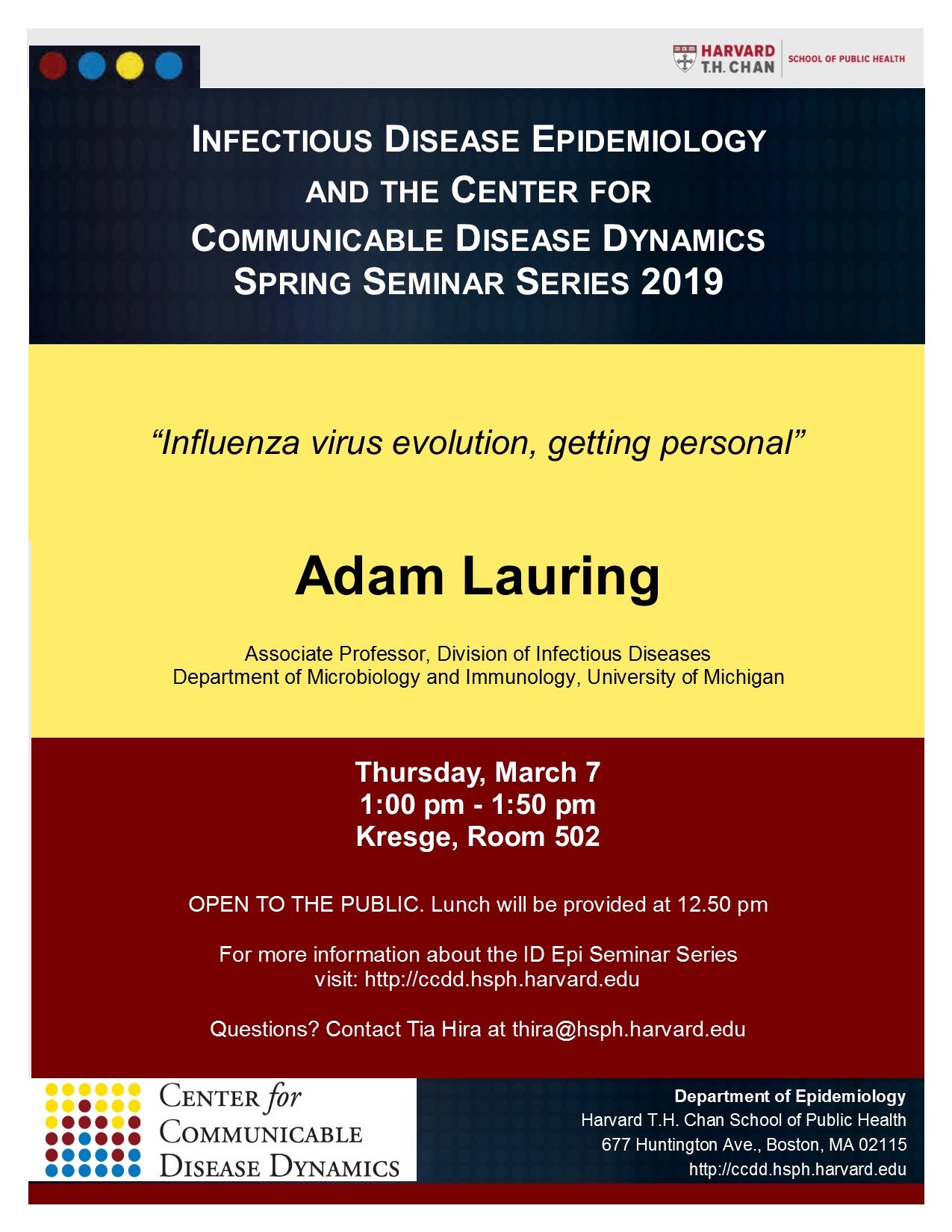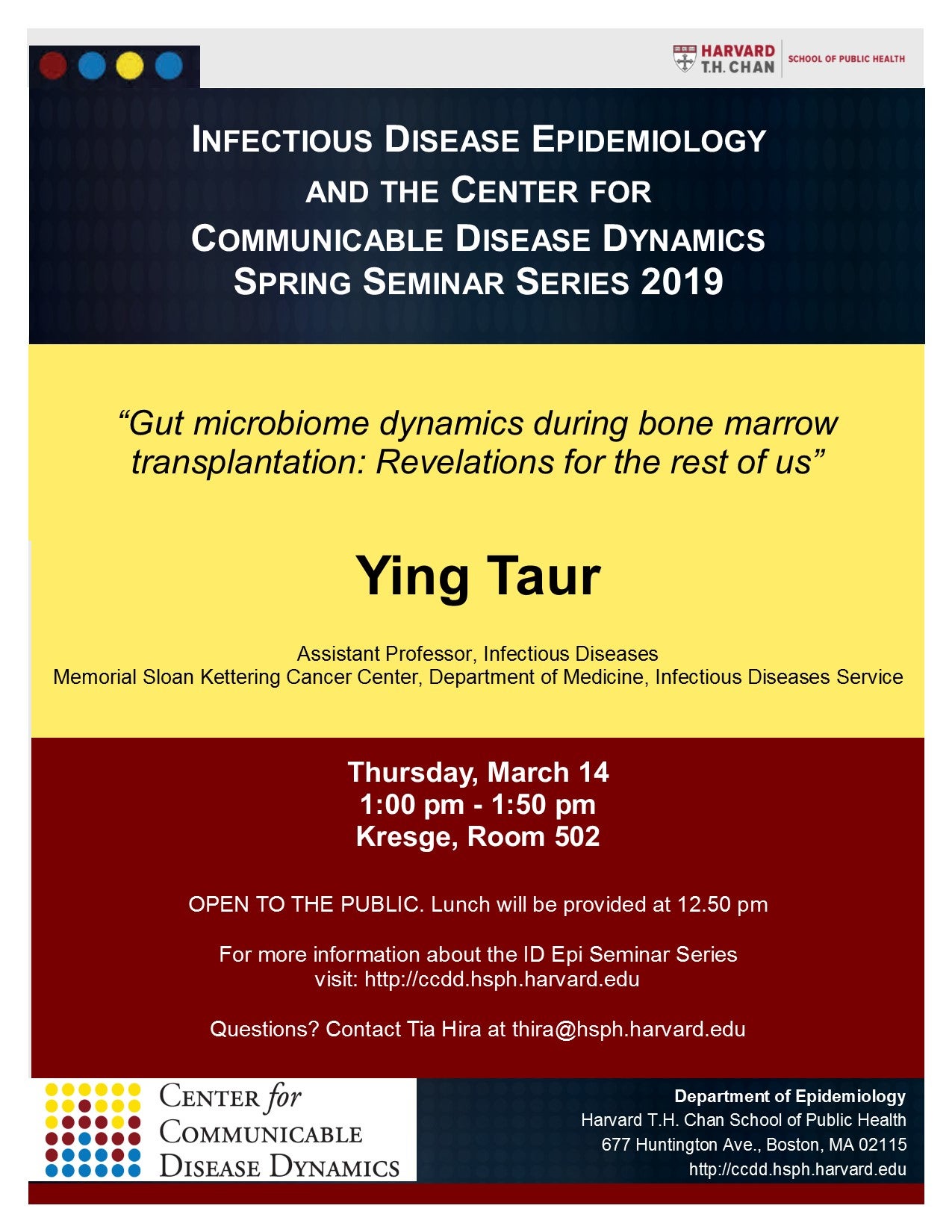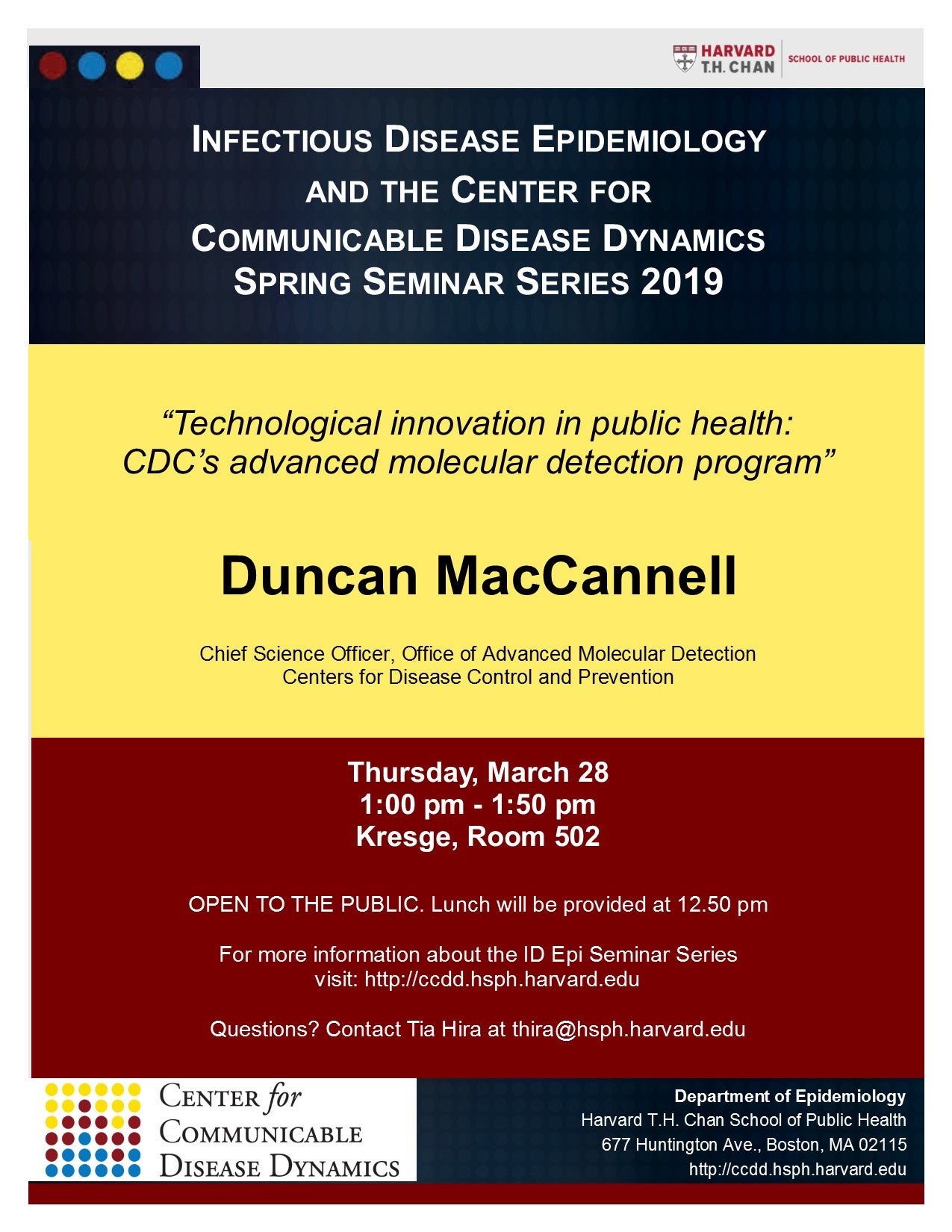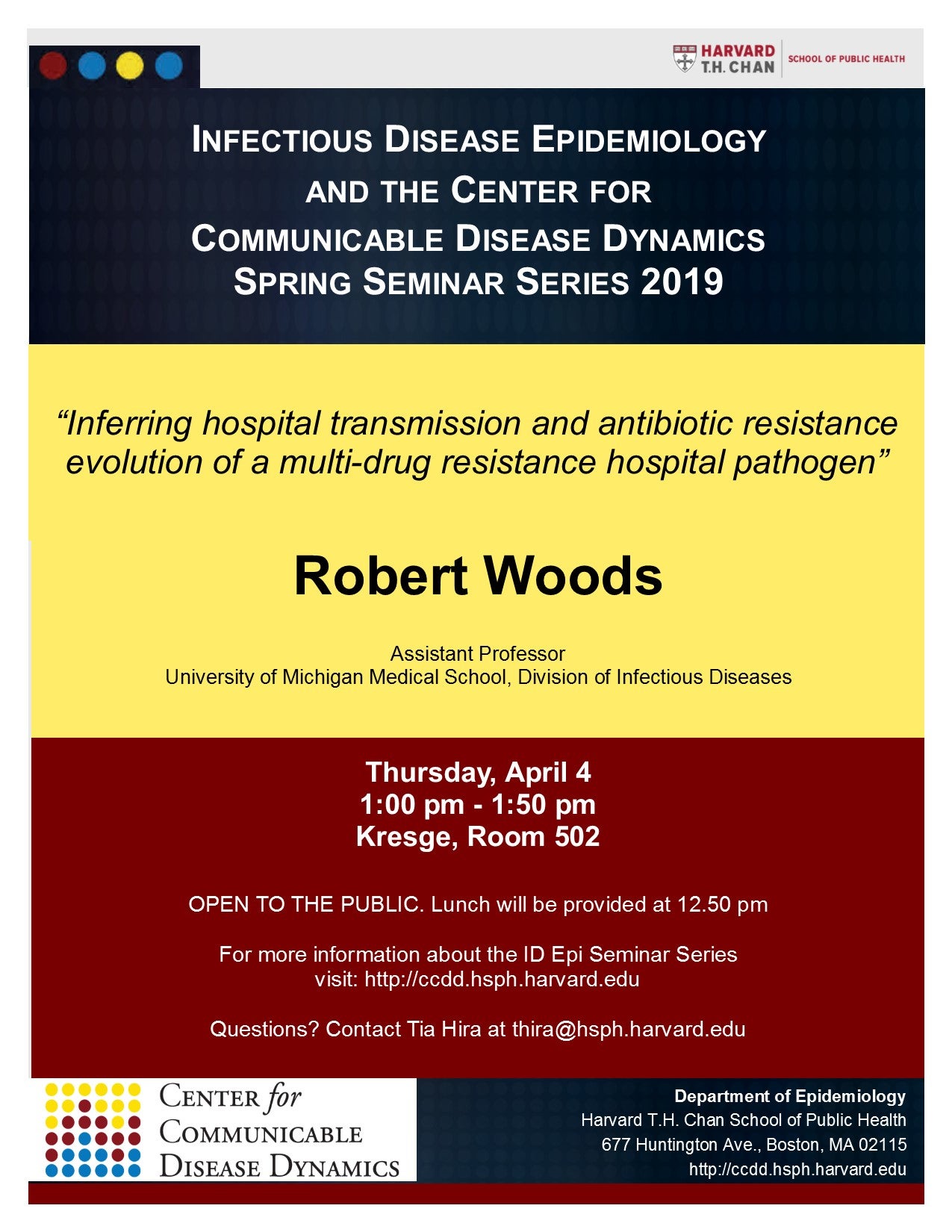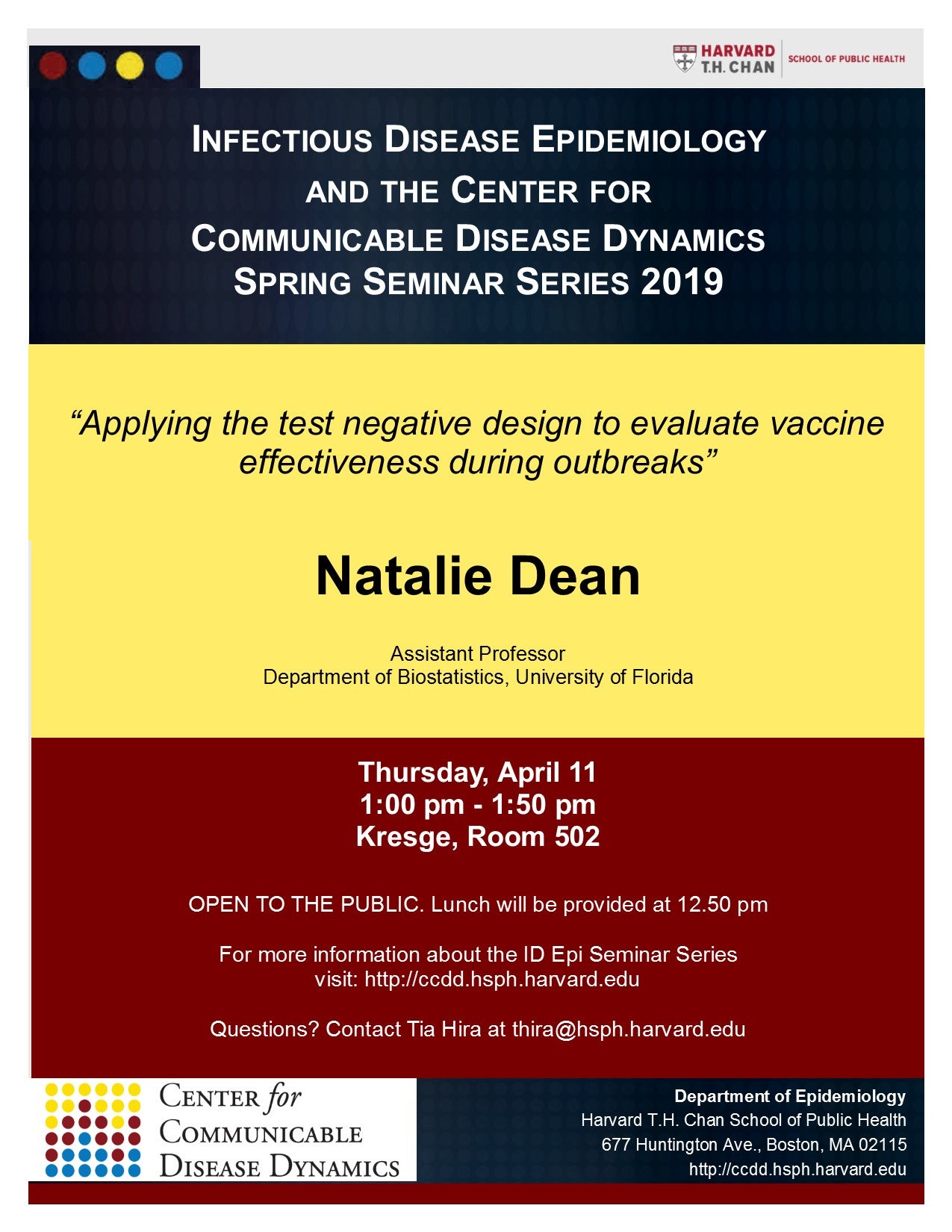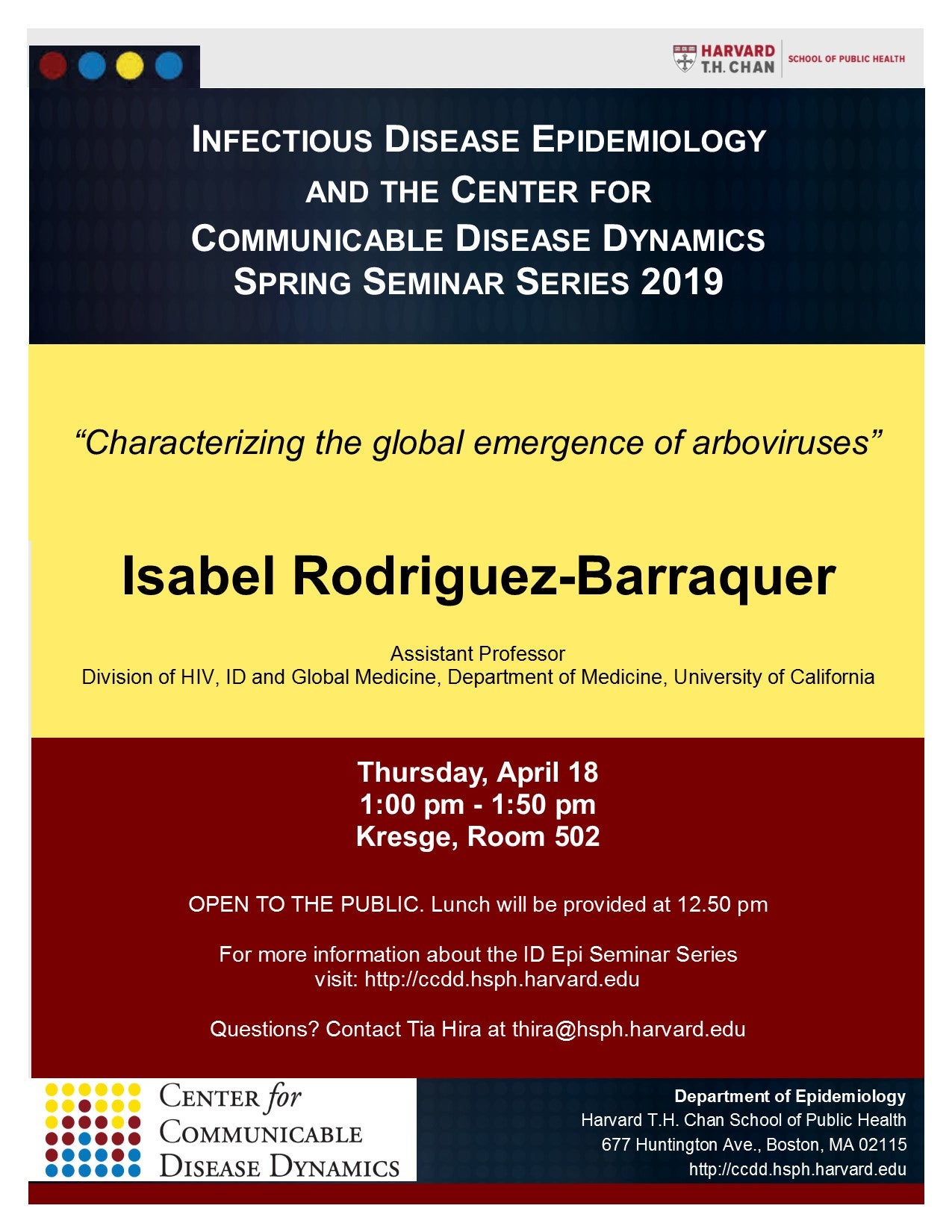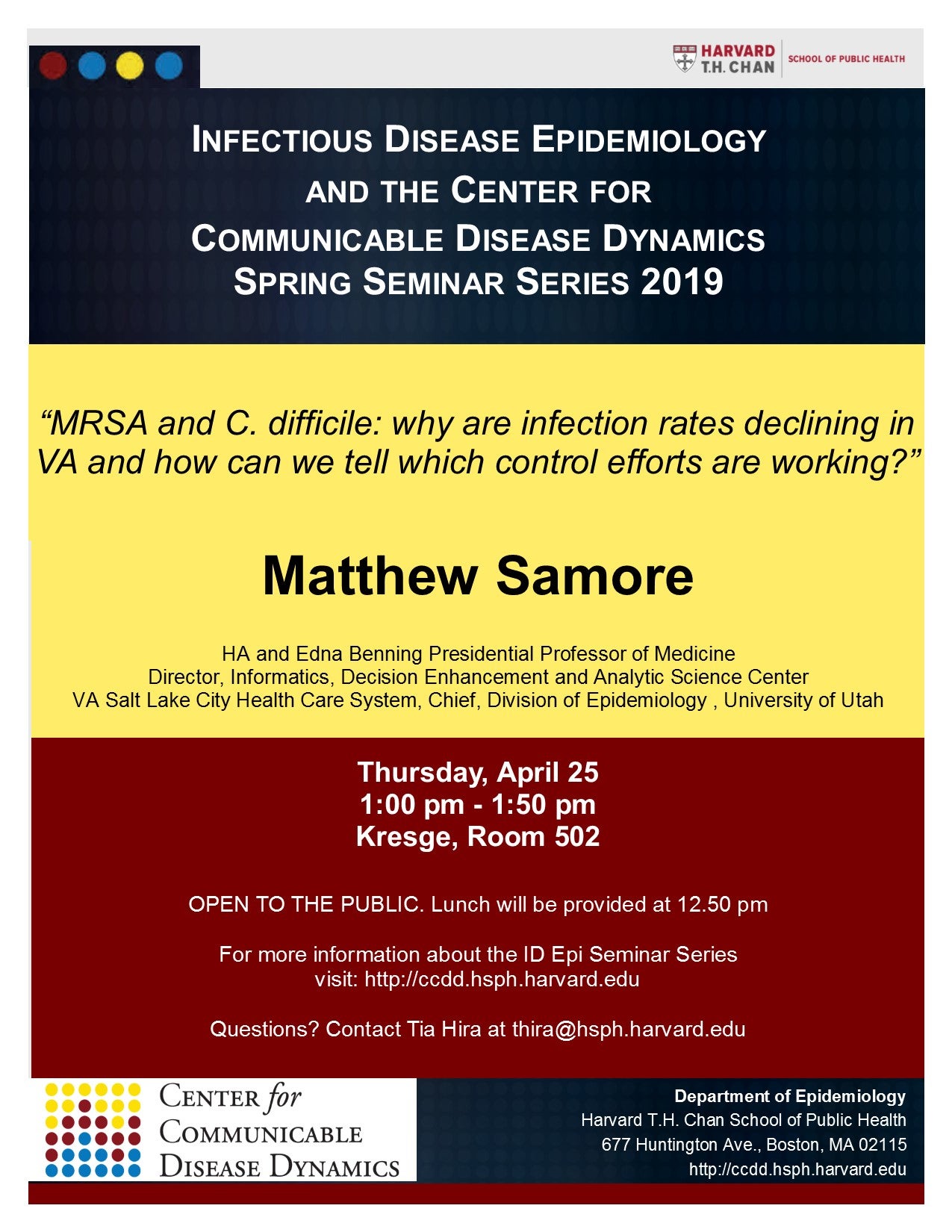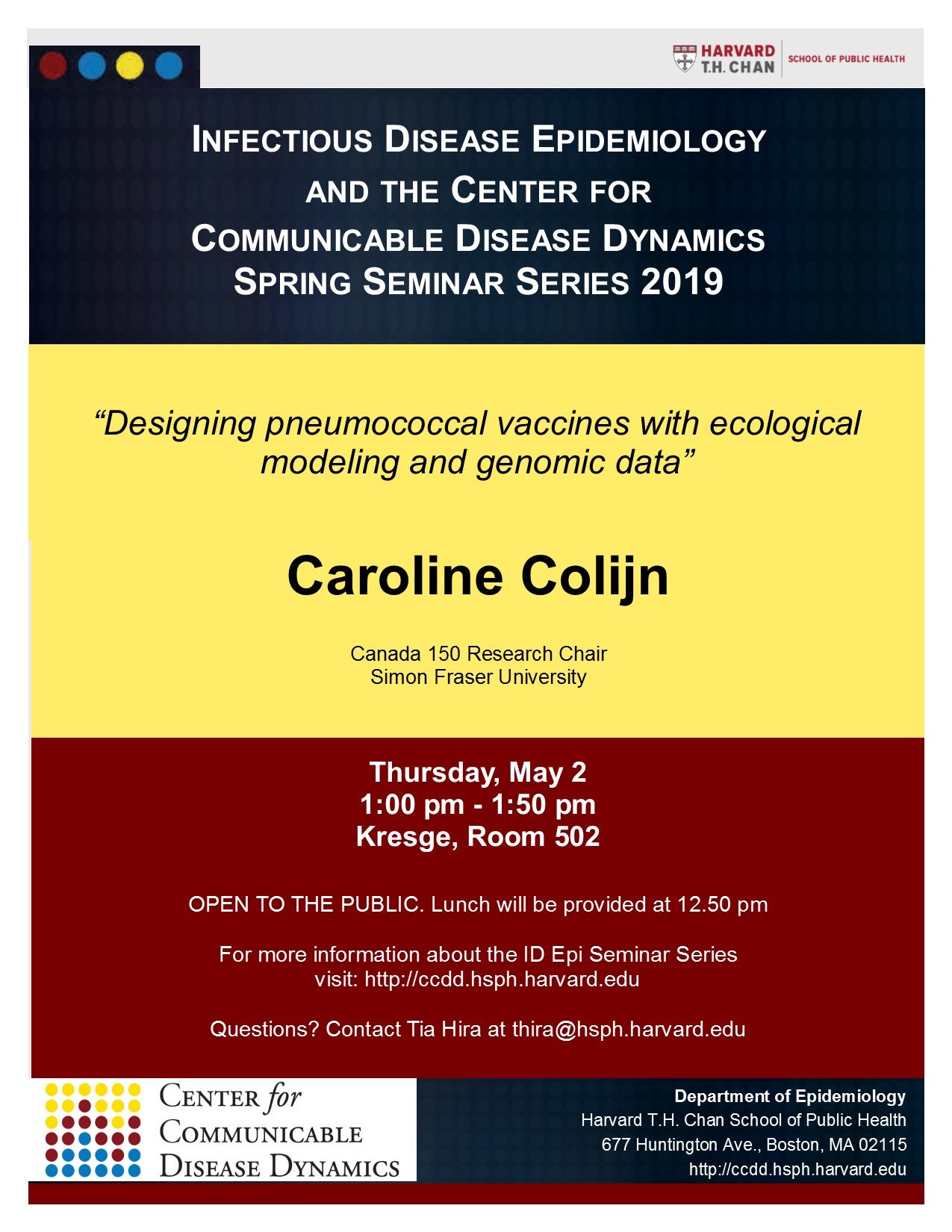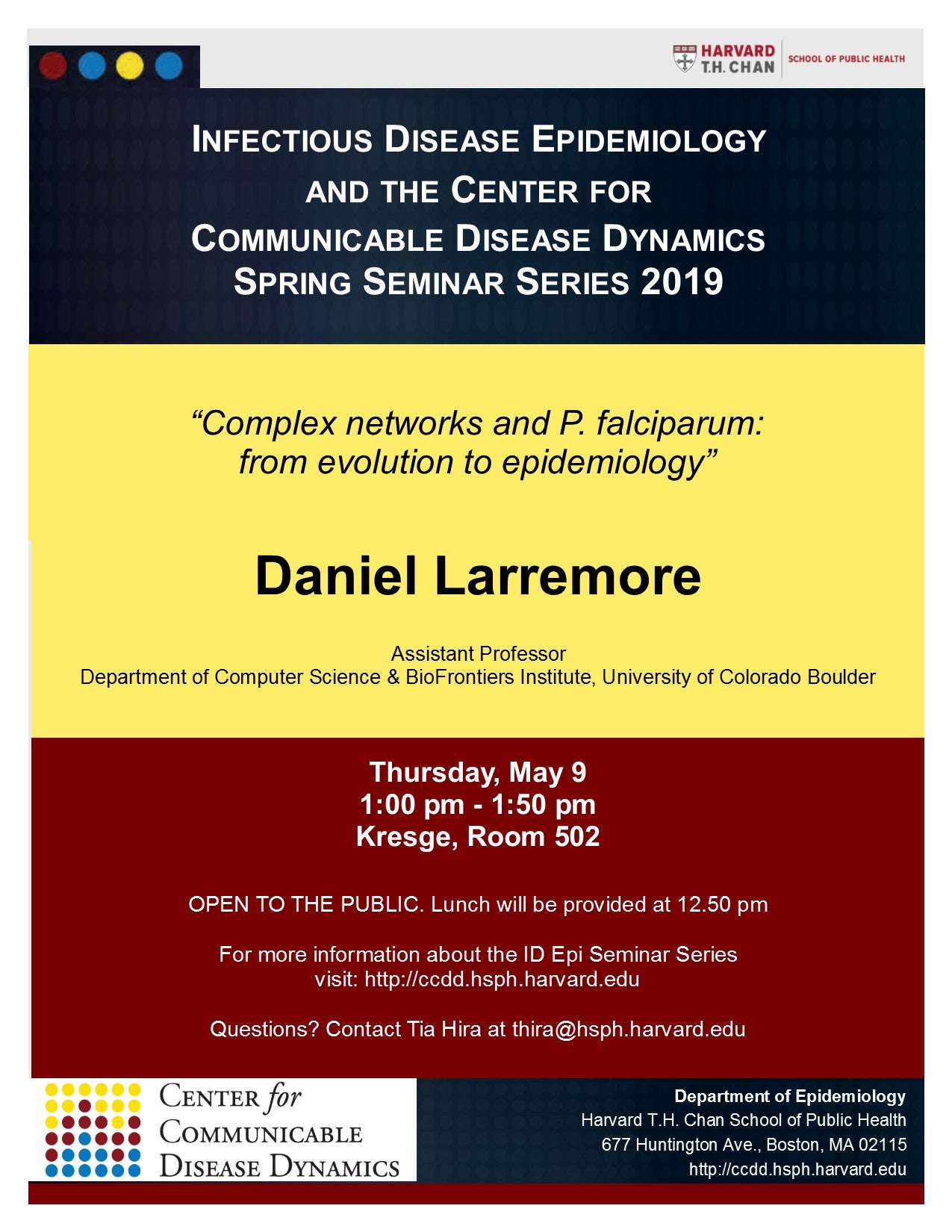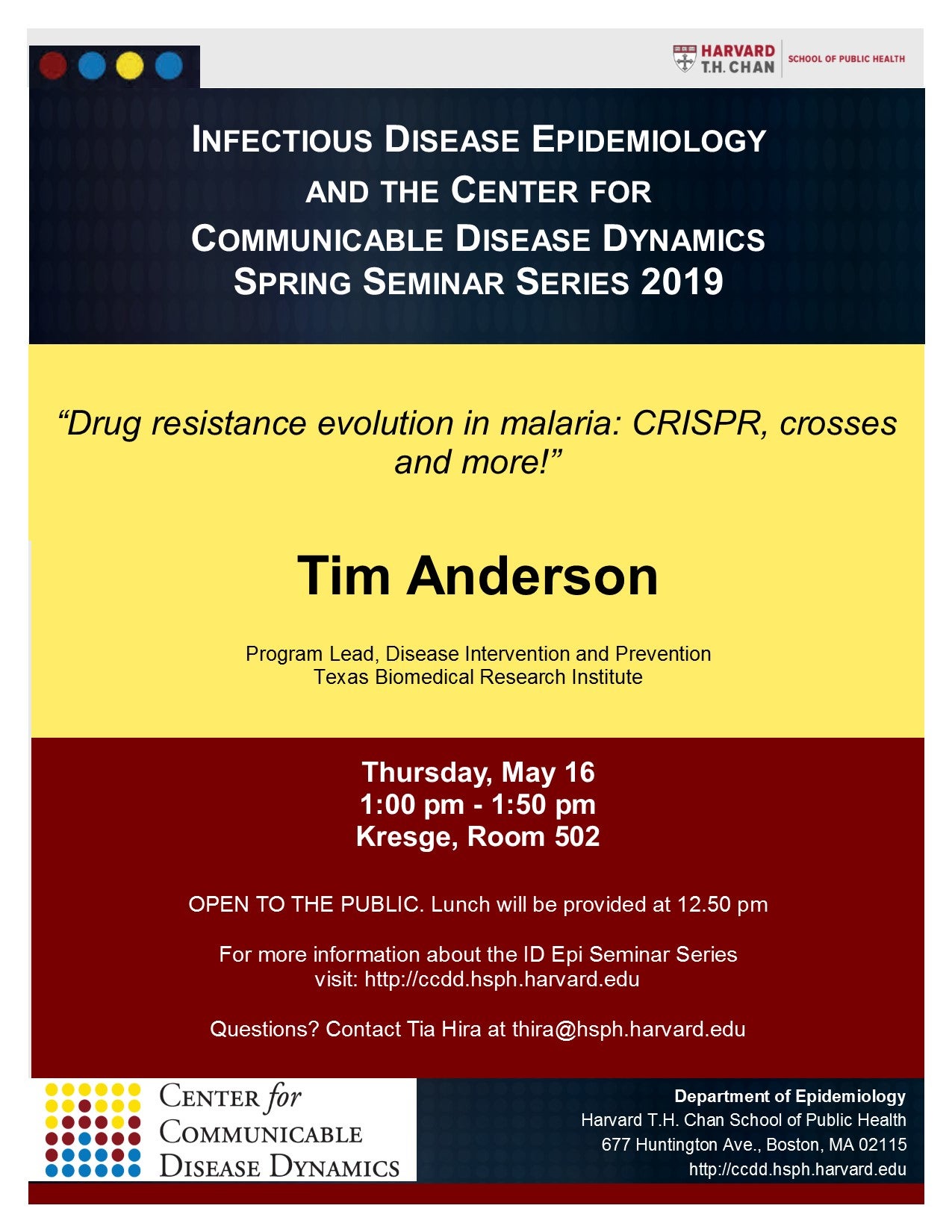ID Epi Seminar Series: Adam Lauring
Kresge Building, Room 502, Harvard Chan School 677 Huntington Ave., Boston, MABio: Dr. Lauring received a PhD in molecular biology in 2000, followed by a MD in 2002, both from the University of Washington. He did his graduate work on FeLV with Julie Overbaugh at the Fred Hutchinson Cancer Research Center. Dr. Lauring completed a medical residency and infectious diseases fellowship at UCSF. Adam’s postdoctoral research in Raul Andino’s laboratory focused on the evolutionary dynamics of poliovirus. He joined the faculty…

